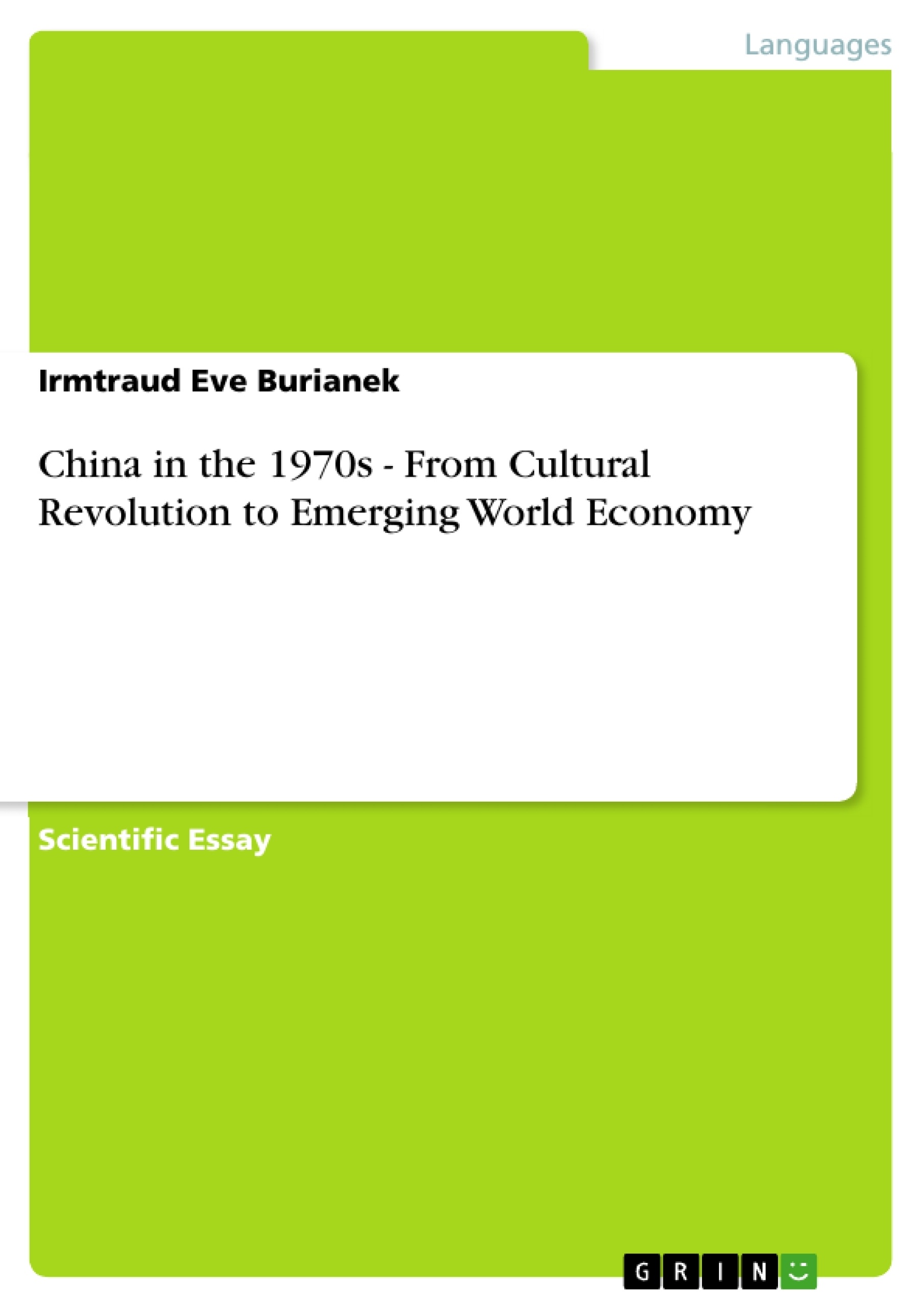The tumultuous decade of the Seventies in China develops from a suppressive phase determined by the Cultural Revolution and the principles of communist dictatorship to its first unexpected opening to the West with Nixon’s visit to China in 1972. We will follow China’s history from the death of Mao Zedong and Zhou Enlai in 1976, through the turmoil following the arrest of the Gang of Four in October 1976, the reform course of Deng Xiaoping beginning in 1978, the democracy movement, to the deep structural economic reforms with the “open door” policy in 1980.
The Seventies began in China in the dark era of the Cultural Revolution. Mao, despite his position of being the godlike Supreme Leader of China, became aware in the mid Sixties that the pragmatists in the Communist Party were actually running the country. Under the pragmatists, China finally showed improvement in living standards, a more relaxed lifestyle, and greater literary and artistic freedom. But Mao saw exactly this as a threat to his own person and resented the successful party officials up to the leaders in his immediate vicinity. He regarded himself as a Stalin figure. In 1956 Soviet Premier Nikita Khrushchev had denounced Stalin. Mao decided to make a preemptive strike and destroy the man he regarded as “China’s Khrushchev”, Liu Shaoqi, as well as Liu’s colleague Deng Xiaoping, as well as their followers in the party. Because they were numerous, he came up with a diabolical plan of turning the Chinese against each other in an unprecedented mass campaign of denunciation. Mao appealed to lower officials o criticize and denounce their superiors for betraying the revolution, students to criticize their teachers and professors, workers their supervisors, neighbors their neighbors and young people their elders. One billion people were turned upside down, looking for “counterrevolutionary” tendencies in each other. This he deceptively termed the “Cultural Revolution”. For the “culture” part, Mao involved his wife Jiang Qing. Mao accepted his wife’s former career as an actress in Shanghai as a as sufficient base for overseeing China’s intellectual and artistic life.
Table of Contents
- Paranoia and Isolation: The Cultural Revolution 1966 - 1976
- The Death of the Two Communist Leaders Mao and Zhou Enlai in 1976
- The Last Perfect Revolutionary Zhou Enlai
Objectives and Key Themes
This preview offers a chronological and thematic overview of China in the 1970s, focusing on the transition from the tumultuous Cultural Revolution to the beginnings of the country's re-engagement with the global economy. The text explores the dynamics of China's internal political struggles and its relationship with the outside world, particularly with the West. The key themes include:- The legacy of the Cultural Revolution and its impact on Chinese society
- The political and economic reforms that followed Mao Zedong's death
- The role of key figures like Mao Zedong, Zhou Enlai, and Deng Xiaoping in shaping China's destiny
- China's shifting foreign policy and its re-opening to the world
- The impact of these developments on China's internal and external landscape
Chapter Summaries
The first chapter focuses on the Cultural Revolution, highlighting the paranoia and isolation that characterized this period. The text depicts the devastating impact of the Cultural Revolution on Chinese society, with the denunciation of individuals deemed “counterrevolutionary,” the persecution of intellectuals, and the destruction of cultural heritage. This chapter also introduces the story of Jung Chang's parents, providing a personal perspective on the hardships of the Cultural Revolution. The second chapter delves into the lives and legacies of Mao Zedong and Zhou Enlai, the two communist leaders who shaped the fate of China during this tumultuous period. It discusses Zhou Enlai's emergence as a moderate and pragmatic leader who navigated the complexities of China's political landscape, while highlighting the brutality of Mao's regime.Keywords
The main keywords and focus topics of the text include the Cultural Revolution, Mao Zedong, Zhou Enlai, Deng Xiaoping, China's political reforms, China's economic reforms, China's foreign policy, China's re-opening to the world, and the impact of these developments on Chinese society.- Quote paper
- Dr.phil. Irmtraud Eve Burianek (Author), 2009, China in the 1970s - From Cultural Revolution to Emerging World Economy, Munich, GRIN Verlag, https://www.grin.com/document/127244




